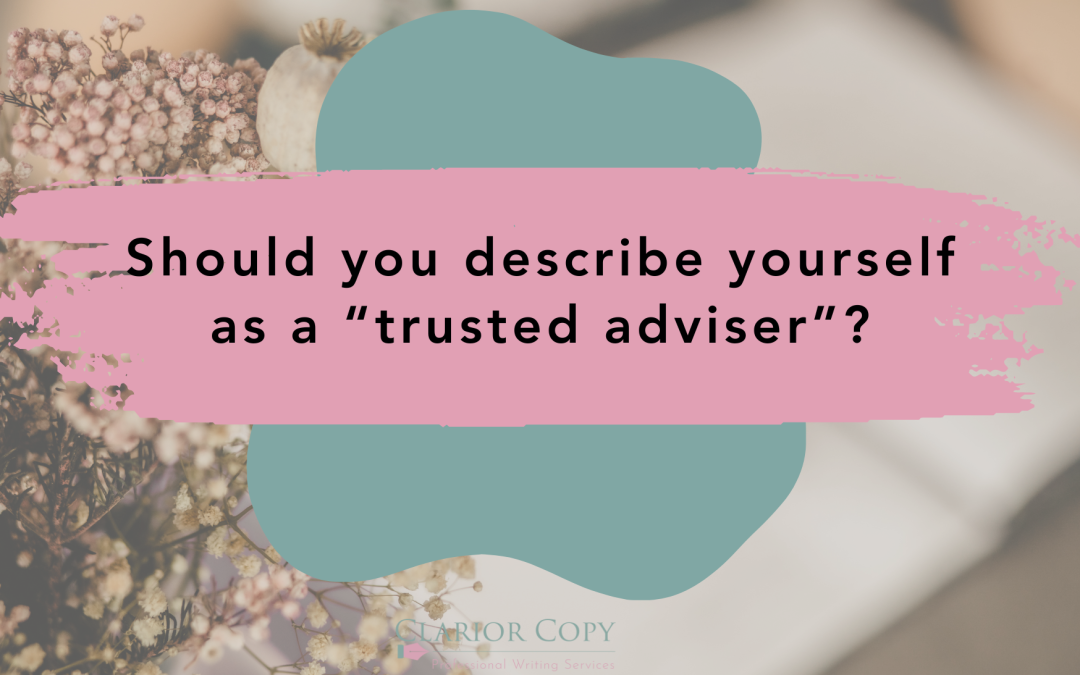As somebody who works in professional services, you know you need to be credible, reliable, and trustworthy to win and retain clients.
That’s why most professional services describe themselves as “trusted advisers.”
The sentiment is good, even necessary. But you might have a niggling sense that this “trusted advisers” phrase has become overused.
You’re worried that it’s now a cliché, and lost its impact. But yet, you still want to be seen as a trusted adviser, because it actually describes the value of your service.
What’s the way around this conundrum?
It’s the old adage: show don’t tell.
You absolutely can describe yourself as a trusted adviser. But to add weight to the phrase, you need to prove it. And that’s where your content strategy comes in.
A joined-up strategy for content will demonstrate your expertise in elegant and effective ways.
Here’s how you do it.
Case studies: But get specific
Case studies show the specific results you’ve achieved for your clients.
A hopeful Googler looking for a ‘litigation lawyer’ may not know one disputes lawyer from the next. But reading a few case studies will help narrow it down.
Do they want:
- Poppy Graham who achieved £75,000 compensation for a client in a personal injury claim from a motorbike crash; or
- Michael Francis who won £400,000 in damages for his client in a minority shareholder dispute; or
- Great Lawyers and their team of trusted advisers
The more specific you can be, the more trust you build. It’s that specificity that will attract the clients you’re looking for.
Lightweight blogs: But make them conversational
Easy-to-digest blogs and LinkedIn posts show that you can explain complex issues in simple terms.
They create a sense of familiarity so it’s less daunting for potential clients to get in contact with you.
Think about your prospective clients. These days, very few people just pick up the phone and make an enquiry. Most people will do a little research to find out about the people they might instruct.
If your clients can see some value-packed blogs that answer some of their questions in a straightforward way, they’ll feel more confident that your advice will be easy to understand.
For most people, dealing with professional services is intimidating. So a conversational blog can build familiarity before they’ve even made an enquiry.
Articles on the tricky stuff
Explaining how difficult points of law or complex policy updates affect your clients shows that you know your onions.
Your potential clients may not understand the nuance of all the points in that article. But they will trust that you do.
And more importantly, they trust that you’ll be able to untangle their complicated legal or financial issue that seems opaque to them.
Articles like these are often published externally in industry magazines or the press. So at the same time, you’re building your credibility by being visible in various publications.
Commenting on relevant updates
Let people know that you have your finger on the pulse and you’re interested in what’s happening in your industry.
Your clients will trust that you won’t miss a critical piece of new policy.
And it shows your attention to detail, suggesting that you’ll take equal meticulous care over their matter.
Your content strategy shows that you’re a trusted adviser
Each of these pieces of content work together to send the message that you’re a safe pair of hands, or if you like, a trusted adviser.
It sounds simple, right?
But people who work in professional services are experts at what they do. Not necessarily at content creation.
I help my clients become known as trusted advisers with a comprehensive plan:
- I create a content strategy to get their key messages across
- I come up with relevant ideas for content every week
- I keep an eye out for relevant updates
- I write engaging content that’s helpful for their audience
All they have to do is cast an eye over the content and post it.
If you’d like a hand with your content, I’d love to have a chat.

